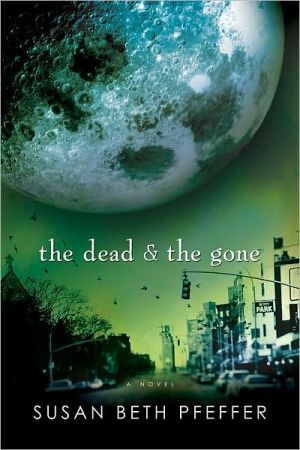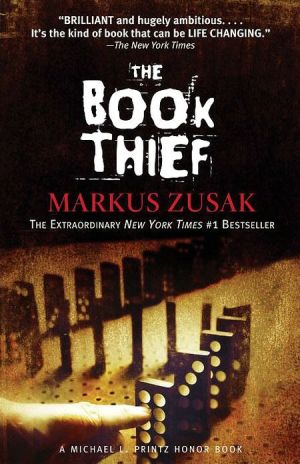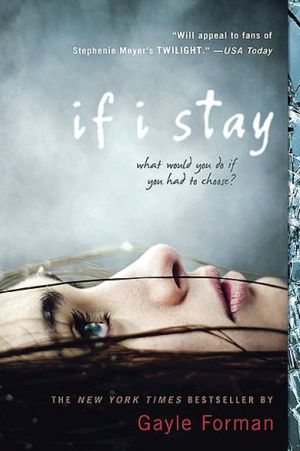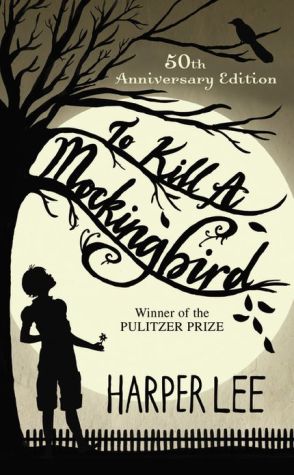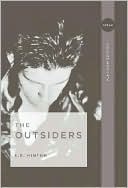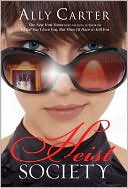The Dead and the Gone (Life As We Knew It #2)
Susan Beth Pfeffer’s Life as We Knew It enthralled and devastated readers with its brutal but hopeful look at an apocalyptic event—an asteroid hitting the moon, setting off a tailspin of horrific climate changes. Now this harrowing companion novel examines the same events as they unfold in New York City, revealed through the eyes of seventeen-year-old Puerto Rican Alex Morales. When Alex's parents disappear in the aftermath of tidal waves, he must care for his two younger sisters,...
Search in google:
"You will read it in one sitting, fighting back tears as you bite your nails." —teenreads.com on Life As We Knew ItThe New York Times - John GreenWhat makes The Dead and the Gone so riveting is its steadfast resistance to traditional ideas of hope in children's books—l;which is to say this is a dark and scary novel. But it is not without hope…the tension between faith and disaster keeps the story taut. Pfeffer subtly explores the complexity of believing in an omnipotent God in the wake of an event that, if it could have been prevented, surely would have been…the story's climax and resolution feel achingly right. Pfeffer subverts all our expectations of how redemption works in teenage fiction, as Alex learns to live, and have faith, in a world where radical unfairness is the norm.
the dead and the gone \ By Pfeffer, Susan Beth \ Harcourt Children's Books Copyright © 2008 Pfeffer, Susan Beth\ All right reserved.\ ISBN: 9780152063115 \ \ \ \ chapter 1 Wednesday, May 18 At the moment when life as he had known it changed forever, Alex Morales was behind the counter at Joey’s Pizza, slicing a spinach pesto pie into eight roughly equal pieces. "I ordered an antipasto, also." "It’s right here, sir," Alex said. "And your order of garlic knots." "Thanks," the man said. "Wait a second. Aren’t you Carlos, Luis’s kid?" Alex grinned. "Carlos is my older brother," he said. "I’m Alex." "That’s right," the man said. "Look, could you tell your dad there’s a problem with the plumbing in twelve B?" "My father’s away for a few days," Alex said. "He’s in Puerto Rico for my grandmother’s funeral. But he should be back on Saturday. I’ll tell him as soon as he gets home." "Don’t worry about it," the man said. "It’s waited this long. I’m sorry to hear about your grandmother." "Thank you," Alex said. "So where is your brother these days?" the man asked. "He’s in the Marines," Alex said. "He’s stationed at Twentynine Palms, in California." "Good for him," the man said. "Give him my regards. Greg Dunlap, apartment twelve B." "I’ll do that," Alex said. "And I’ll be sure to tell my father about your plumbing." Mr. Dunlap smiled. "You in school?" he asked. Alex nodded."I go to St. Vincent de Paul Academy," he said. "Good school," Mr. Dunlap said. "Bob, my partner, went there and he says it’s the best school in the city. You know where you want to go to college?" Alex knew exactly where he wanted to go, and where he’d be happy to go, and where he would be satisfied to go. "Georgetown’s my first choice," he said. "But it depends on the financial package. And if they accept me, of course." Mr. Dunlap nodded. "I’ll tell Bob Luis’s kid goes to Vincent de Paul," he said. "You two can swap stories someday." "Great," Alex said. "Your bill comes to $32.77." Mr. Dunlap handed him two twenties. "Keep the change," he said. "Put it toward your college fund. And be sure to give Carlos my regards. Luis must be very proud of both his sons." "Thank you," Alex said, passing the pizza, the antipasto, and the bag of garlic knots to Mr. Dunlap. "I’ll remember to tell my father about the plumbing as soon as he gets back." "No hurry," Mr. Dunlap said. Alex knew they always said, "No hurry," when they meant "Get it done right now." But a seven-dollar tip guaranteed that Alex would tell Papi about the plumbing problems in 12B the minute he returned from Nana’s funeral. "The cable’s out," Joey grumbled from the kitchen. "Yankees have the bases loaded in the top of the sixth and the cable dies on me." "It’s May," Alex said. "What difference does it make?" "I have a bet on that game," Joey said. Alex knew better than to point out the game was still going on even if the cable was out. Instead he turned his attention to the next customer, filling her order for two slices of pepperoni pizza and a large Coke. He didn’t get away until ten, later than he usually worked, but the pizza parlor was short staffed, and since Joey was cranky without his ball game to watch, Alex didn’t think it a good idea just to leave. It was a muggy, overcast night, with the feeling of thunderstorms in the air, but as long as it wasn’t raining, Alex enjoyed the walk. He concentrated on Georgetown and his chances of getting in. Being junior class vice president would help, but he had no chance at senior class president. Chris Flynn was sure to win again. Alex had the presidency of the debate squad locked up. But would he or Chris be named editor of the school paper? Alex was weighing the odds between them when his thoughts were interrupted by a man and woman walking out of the Olde Amsterdam Tavern. "Come on, honey," the man said. "You might as well. We could be dead by tomorrow." Alex grinned. That sounded like something Carlos would say. But as Alex raced across Broadway, fire engines and ambulances screamed down the avenue with no concern for traffic lights, and he began to wonder what was going on. Turning onto Eighty-eighth Street, he saw clusters of people standing in front of their apartment buildings. There was no laughter, though, no fighting. Some of the people pointed to the sky, but when Alex looked upward, all he saw was cloud cover. One well-dressed woman stood by herself weeping. Then, as Alex walked down the short flight of outdoor steps to his family’s basement apartment, the electricity went out. Shaking his head, he unlocked the outside door. Once in the darkened hallway, he knocked on the apartment door. "Alex, is that you?" Briana called. "Yeah. Let me in," he said. "What’s going on?" Bri opened the door. "The electricity just went out," she said. "The cable went out, too." "Alex, where’s the flashlight?" Julie asked. "Check on top of the fridge," Alex said. "I think there’s one there. Where’s Mami?" "The hospital called," Briana said. "A little while ago. Mami said it’s a really big emergency and they need everybody." Julie walked into the living room, waving the flashlight around. "She’s only been there two weeks and they can’t manage without her," she said. "She said they couldn’t tell her when she’d get off," Briana said. "Papi called while you were gone," Julie said. "He said everyone arrived safely and Nana’s funeral is tomorrow. I wish we could have gone with him." "I don’t know why," Briana said. "Whenever the family gets together, you always find some excuse not to go." "You’d better be nice," Julie said. "I have the flashlight." "Use it to find the transistor radio," Alex suggested. "Maybe the whole city is blacked out." He thought, not for the first time, how much more convenient things would be if the Morales family could afford a computer. Not that it would be any use in a blackout. "I bet it has something to do with the moon," Briana said. "Why the moon?" Alex said. "Sunspots cause problems, but I’ve never heard of moonspots." "Not moonspots," Briana said. "But the moon was supposed to get hit tonight by an asteroid or something. One of my teachers mentioned it. She was going to a meteor party in Central Park to watch." "Yeah, I heard about that at school, too," Alex said. "But I still don’t see why an asteroid would knock out the electricity. Or why Mami would be called to the hospital." "The radio isn’t working," Briana said, trying to turn it on. "Maybe the batteries are dead." "Great," Alex said. "In that case, why don’t you take the flashlight and get ready for bed. Mami’ll tell us what happened when she gets home." "It’s too hot without a fan," Julie whined. Alex didn’t know how Mami and Bri put up with Julie. She was Carlos’s favorite, too. Papi actually seemed to think she was cute, but that was because she was the baby of the family. A twelve-year-old baby, in Alex’s opinion. "Do you think everything is okay?" Briana asked. "I’m sure it is," Alex said. "Probably a big fire downtown. I heard a lot of sirens." "But Mami works in Queens," Briana said. "Why would the hospital need her there if the fire’s downtown?" "A plane crash, then," Alex said, thinking of the people pointing to the sky. "Remind me to tell Papi that twelve B has a plumbing problem, okay. And go to bed. Whatever the emergency is, it’ll be gone by morning." "All right," Briana said. "Come on, Julie. Let’s pray extra hard for everybody." "That sounds like fun," Julie grumbled, but she followed her big sister to their bedroom. Mami kept votive candles in the kitchen, Alex remembered. He stumbled around until he found one and matches to light it. It cast only a small amount of light, but enough for him to make his way to the room he had once shared with Carlos. Originally the two rooms had been the master bedroom, but when they’d moved in, Papi had built a dividing wall, so that the boys and the girls each got a small bedroom. He and Mami slept in their own room. Even without Carlos, the apartment was crowded, but it was home and Alex had no complaints. He undressed quickly, opened the door slightly so he could hear Mami when she got home, blew out the candle, and climbed into the lower half of the bunk bed. Through the thin wall, he could hear Briana’s Dios te salve, María. Papi thought Bri was too devout, but Mami said it’s just a stage fourteen-year-old girls go through. Somehow Alex didn’t think Julie would go through that stage when she turned fourteen. When Alex had been fourteen, three years ago, he’d thought for a couple of days about becoming a priest. But Bri was different. Alex could actually see her becoming a nun someday. Mami would love that, he knew. Sister Briana, he thought as he turned on his side, his head facing the wall. My sister the sister. He fell asleep grinning at the thought. Copyright © 2008 by Susan Beth Pfeffer All rights reserved. No part of this publication may be reproduced or transmitted in any form or by any means, electronic or mechanical, including photocopy, recording, or any information storage and retrieval system, without permission in writing from the publisher. Requests for permission to make copies of any part of the work should be submitted online at www.harcourt.com/contact or mailed to the following address: Permissions Department, Houghton Mifflin Harcourt Publishing Company, 6277 Sea Harbor Drive, Orlando, Florida 32887-6777. \ \ Continues... \ \ \ Excerpted from the dead and the gone by Pfeffer, Susan Beth Copyright © 2008 by Pfeffer, Susan Beth. Excerpted by permission.\ All rights reserved. No part of this excerpt may be reproduced or reprinted without permission in writing from the publisher.\ Excerpts are provided by Dial-A-Book Inc. solely for the personal use of visitors to this web site.\
\ John GreenWhat makes The Dead and the Gone so riveting is its steadfast resistance to traditional ideas of hope in children's books—l;which is to say this is a dark and scary novel. But it is not without hope…the tension between faith and disaster keeps the story taut. Pfeffer subtly explores the complexity of believing in an omnipotent God in the wake of an event that, if it could have been prevented, surely would have been…the story's climax and resolution feel achingly right. Pfeffer subverts all our expectations of how redemption works in teenage fiction, as Alex learns to live, and have faith, in a world where radical unfairness is the norm.\ —The New York Times\ \ \ \ \ Publishers WeeklyAs riveting as Life as We Knew It and even grittier, this companion novel returns to the premise of that previous book to show how New York City responds to the global disasters that ensue when an asteroid knocks the moon out of orbit. This time Pfeffer focuses on high school junior Alex Morales, whose parents go missing after the catastrophe. It's up to him to find a way to keep himself and his two younger sisters alive while the planet is rocked by famine, floods, freezing temperatures and widespread disease. Once again Pfeffer creates tension not only through her protagonist's day-to-day struggles but also through chilling moral dilemmas: whether to rob the dead, who to save during a food riot, how long to preserve the hope that his parents might return. She depicts death and destruction more graphically than before, making the horror of Alex's ordeal all the more real. Religion also plays a larger role. A devout Catholic, Alex finds his faith in God shaken, but he relies on the guidance, compassion and sacrifice of church leaders in order to stay alive. The powerful images and wrenching tragedies will haunt readers. Ages 12-up. (June)\ Copyright © Reed Business Information, a division of Reed Elsevier Inc. All rights reserved.\ \ \ VOYAAGE RANGE: Ages 11 to 18. \ The Dead and the Gone is a captivating read displaying the strengths of humanity. Alex is realistically flawed and easy to relate to, fighting to care for his sisters while the world around them disintegrates. Those who enjoyed the journal style of the companion novel may be surprised by the switch to third-person narration, but most will be delighted to observe the same depth of character and the same ability to move readers to tears. Reviewer: Hannah L. Jones, Teen Reviewer.\ April 2008 (Vol. 31, No. 1)\ \ \ \ \ \ Jennifer LeeSeventeen-year-old Alex Morales and his family live in New York City. His mom has started a new job at the hospital, his older brother Carlos has gone off to the Marines, and his father is in Puerto Rico for a funeral. Alex and his two younger sisters are alone at home when it happens: the moon is hit by an asteroid, which knocks it out of its normal orbit. The moon rolls closer to Earth, and that is where the story really takes off. Sure, the moon may not seem very important. At least that's what Alex thinks at first. But when the tsunamis hit and the Statue of Liberty is washed away, readers know things aren't going to get better any time soon. It's one disaster after another, and Alex needs to take care of himself, as well as his sisters. If you liked Pfeffer's Life As We Knew It, this book is a companion to it, although not a sequel. Volcanic eruptions, earthquakes, food shortages, and epidemics: this book has it all. Reviewer: Jennifer Lee\ \ \ \ \ School Library JournalGr 7 Up\ An asteroid knocks the moon closer to Earth, and every conceivable natural disaster occurs. Seventeen-year-old Alex Morales's parents are missing and presumed drowned by tsunamis. Left alone, he struggles to care for his sisters Bri, 14, and Julie, 12. Things look up as Central Park is turned into farmland and food begins to grow. Then worldwide volcanic eruptions coat the sky with ash and the land freezes permanently. People starve, freeze, or die of the flu. Only the poor are left in New York-a doomed island-while the rich light out for safe towns inland and south. The wooden, expository dialogue and obvious setup of the first pages quickly give way to the well-wrought action of the snowballing tragedy. The mood of the narrative is appropriately frenetic, somber, and hopeful by turns. Pfeffer's writing grows legs as the terrifying plot picks up speed, and conversations among the siblings are realistically fluid and sharp-edged. The Moraleses are devout Catholics, and though the church represents the moral center of the novel, Pfeffer doesn't proselytize. The characters evolve as the city decomposes, and the author succeeds in showing their heroism without making them caricatures of virtue. She accurately and knowingly depicts New York City from bodegas to boardrooms, and even the far-fetched science upon which the novel hinges seems well researched. This fast-paced, thoughtful story is a good pick for melodrama fiends and reluctant readers alike.-Johanna Lewis, New York Public Library\ \ \ \ \ \ Kirkus ReviewsSeventeen-year-old Alex, the son of a Puerto Rican New York City working-class family, attends college-prep Vincent de Paul on scholarship. An after-school job and chores assigned by his building superintendent father keep Alex focused on a better future, with ambitions of attending an Ivy League school through study, hard work and a little faith. But when his parents fail to return home after the catastrophic environmental events following the moon's altered gravitational pull, Alex suddenly faces the reality of survival and the obligation to protect his two younger sisters. His moral and religious upbringing is continually put to the test as he finds himself forced to take action that is often gruesome if not unethical-like "body shopping," to collect objects to barter for food. As in the previous novel, Life as We Knew It (2006), realistically bone-chilling despair and death join with the larger question of how the haves and have-nots of a major metropolitan city will ultimately survive in an increasingly lawless, largely deserted urban wasteland. Incredibly engaging. (Fiction. YA)\ \
